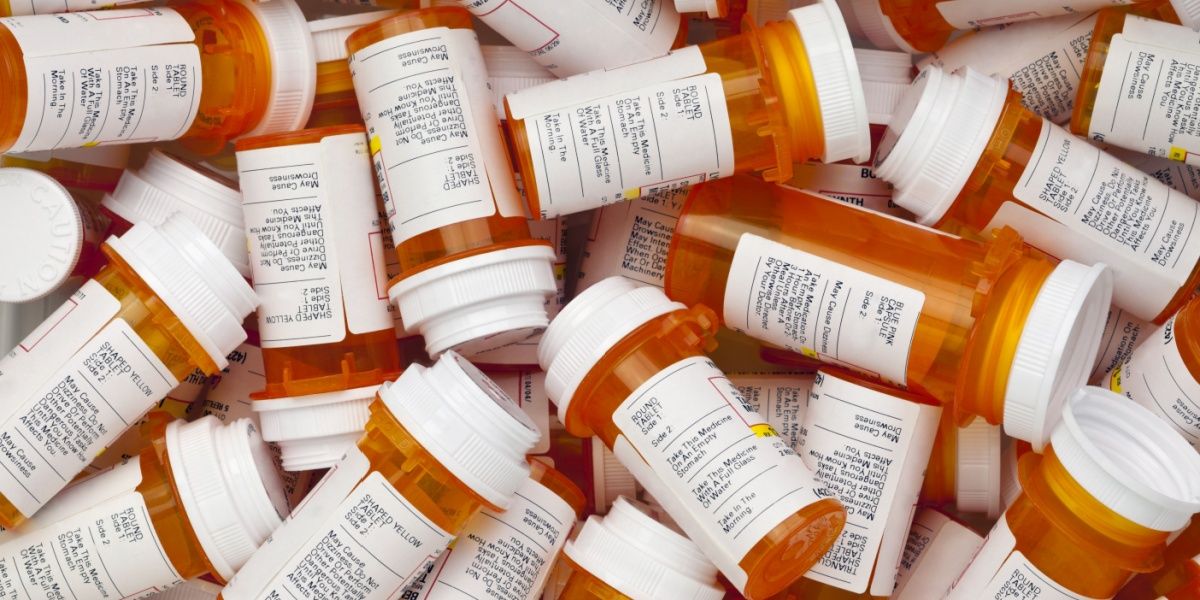Baclofen is used to relieve discomfort caused by muscle pains, spasms, strains, cramping, and tightness. Baclofen interacts with the central nervous system and causes relaxation and pain relief. This means that the drug is susceptible to abuse, dependence, and addiction.
Baclofen is occasionally prescribed as a substance use disorder treatment, specifically for those going through opioid and alcohol withdrawal.
Baclofen is quickly and completely absorbed into the body following oral administration and reaches peak concentration in the bloodstream within an hour.
There are certain drugs that are dangerous when taken with baclofen and greatly increase the risk of fatal overdose. Most of these drugs have additional effects that cause sleep and lowered respiration rate.
.jpg?v=1722502496)
What is Baclofen?
Baclofen is the generic name for a muscle relaxant that is prescribed under the brand names Gablofen® and Lioresal®. Baclofen is a GABA-B receptor agonist, which interacts with GABA receptors in the central nervous system (CNS), relieving spasms, muscle tightness, and cramping and is typically used to treat pain caused by multiple sclerosis (MS), cerebral palsy, and other muscle-related conditions. Baclofen can alleviate discomfort but can not cure muscle-related conditions.
Baclofen is also occasionally prescribed as a substance use disorder treatment, specifically for those going through opioid and alcohol withdrawal.[1] Baclofen comes as a tablet, solution, or powder.
Baclofen half-life
Baclofen is quickly and completely absorbed into the body following oral administration and reaches peak concentration in the bloodstream within an hour. Baclofen’s half-life is about 5 to 6 hours in the plasma.
Is baclofen a controlled substance?
Despite its muscle relaxant properties and interaction with the CNS, the DEA does not consider baclofen to have any potential for abuse. Therefore, it is not regulated under the Controlled Substances Act and is not under any schedule.
Baclofen side effects
Baclofen has a range of side effects, some mild and others severe. Baclofen may also cause an allergic reaction which can be life-threatening. Seek urgent medical help if you have any of the following symptoms: hives; difficult breathing; swelling of your face, lips, tongue, or throat.[2]
Common side effects from baclofen include:
- Drowsiness
- Dizziness
- Tiredness
- Headaches
- Insomnia
- Nausea/Vomiting
- Constipation
- Increased urination
- Confusion
- Hypotonia (low muscle tone)
Some of the side effects can be exacerbated when the drug is taken in large amounts or in conjunction with other CNS depressants such as opioids and or alcohol.
Severe side effects of baclofen include:
- Severe drowsiness
- Shallow breathing
- Confusion
- Hallucinations
- Itching, tingling, or twitching in your hands, arms, feet, or legs
- Fever
- Seizure
Baclofen overdose
Baclofen overdoses are rare but can occur. Most recorded instances of baclofen overdoses include a combination of other substances such as opioids or alcohol. Baclofen overdoses tend to affect the respiratory system, which can be fatal if left unchecked. Symptoms of baclofen overdose include:
- Respiratory depression
- Lack of tendon reflexes
- Coma
- Hypothermia
- Bradycardia
- Seizures
- Cardiac conduction abnormalities
If treatment for baclofen overdoses is administered immediately then full recovery is often possible within 72 hours.
Baclofen interactions
There are certain drugs that are dangerous when taken with baclofen and greatly increase the risk of fatal overdose. Most of these drugs have additional effects that cause sleep and lowered respiration rate.
Let your doctor or physician know if you are taking any of the following medications before taking baclofen:
- Opioid medications
- Sleeping pills
- Muscle relaxers such as benzodiazepines
- Antidepressants
- Seizure medication
- Large quantities of alcohol
- Blood pressure medication
Other drugs may interact with baclofen, including prescription and over-the-counter medicines, vitamins, and herbal products.[1]
Baclofen as a treatment for alcohol use disorders (AUD)
Studies over the last decade have shown evidence that baclofen may be a treatment option for those suffering from AUD, though exactly how it works is unclear.
Most studies have shown that it has something to do with the way in which baclofen interacts with the GABA receptors in the brain. Baclofen interacts with GABA-B receptors in the brain, which are involved in the regulation of neurotransmitter systems for dopamine, serotonin, and glutamate as well as memory pathways and other cognitive functions.
It is hypothesised that baclofen's interaction with GABA-B receptors is what is responsible for its ability to null cravings for certain substances, including alcohol. Olivier Ameisen, a physician who suffered from AUD claimed in a 2005 paper that he was able to nullify the desire for alcohol with a 270mg daily dose of baclofen. Though his case study on himself seemed to prove the efficacy of baclofen for treating addiction, further studies have failed to designate exactly why it works.
Baclofen addiction
Baclofen has pain-relieving and muscle-relaxing qualities that make it susceptible to abuse. When someone abuses baclofen in high doses, it is possible that they will build a tolerance to the drug's effects and eventually develop a physical dependence on it. The negative consequences that come from baclofen dependence are how addiction is measured.
Negative consequences of drug dependence can include cravings for the drug when not using it, taking higher than prescribed doses, ignoring personal responsibilities in order to use the drug, becoming secluded and antisocial in order to use, and withdrawal symptoms presenting themselves when use stops.
Baclofen withdrawal
Withdrawal symptoms from baclofen are reportedly extremely uncomfortable and cause many who are attempting to stop use to relapse. Withdrawal symptoms from baclofen can also be dangerous and should always be overseen by a medical professional in a dedicated detox setting.
Common baclofen withdrawal symptoms may include:
- Increase in or return of spasticity
- Itching
- Tingling sensations
- Low blood pressure
- Lightheadedness
Baclofen withdrawal symptoms can progress and get more severe as time goes on. More severe withdrawal symptoms of baclofen include:
- High fever
- Changed mental status
- Tachycardia
- Muscle stiffness
- Loss of organ function (rare)
Severe baclofen withdrawal can be life-threatening. Always seek medical attention when attempting to quit baclofen use after prolonged exposure.
Baclofen treatment
While baclofen is used to ease muscle pain during addiction treatment (particularly for alcohol and opioid withdrawal) it also has the potential to be dependence and addiction-forming on its own. This means those using the medication to treat withdrawal symptoms should only do so under strict medical supervision.
If you or someone you know has developed an addiction to baclofen then contact a rehab center near you today to begin treatment. Addiction treatment specialists in an inpatient or outpatient facility can provide the care, therapy, and support needed to get free of addiction.
Visit our rehab directory to see treatment options for baclofen addiction near you.
Baclofen FAQs
Here are some of the questions we are most frequently asked about baclofen:
What is a baclofen pump?
A baclofen pump is a method of administering the drug directly into the spinal fluid of patients. A baclofen pump requires invasive surgery to use and is not recommended for all patients suffering from spasticity. Read our guide to find out more about baclofen pumps and intrathecal baclofen treatment.



-guide-detail.jpg?v=1722501965)

